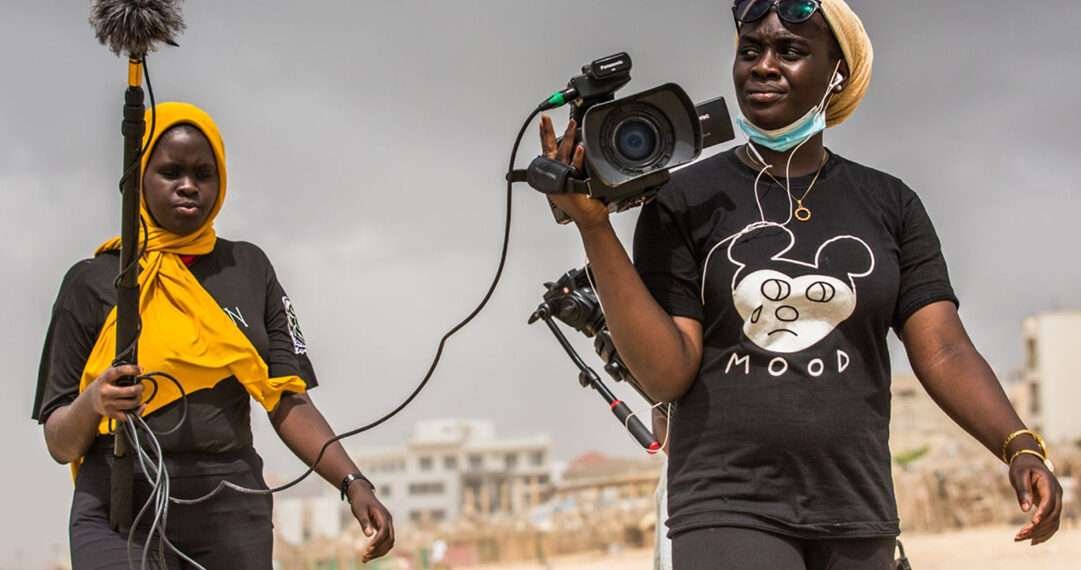The Media Foundation for West Africa (MFWA) has highlighted the gender disparity in newsrooms, pointing out that despite women enrolling in journalism schools and pursuing careers in journalism, they are often relegated to roles that are considered less prestigious or challenging, such as glamorous news anchoring or entertainment reporting.
According to the Media Foundation for West Africa (MFWA), this disparity is driven by cultural stereotypes that position women as more suited for these roles, rather than investigative journalism, which is often seen as a domain for men.
“The factors that continue to drive this gender disparity remain largely similar but tend to be nuanced under the influence of socio-cultural factors that differ from one region of the world to another.”
Media Foundation for West Africa (MFWA)
The Foundation noted that these stereotypes persist despite evidence that women journalists are capable of various roles within journalism. Notable examples of women breaking through these barriers include Ifeyinwa Omowole, Editor-in-chief of the Nigeria News Agency, Khadija Patel, chairperson of the International Press Institute, and Jamila Akweley Okertchiri, the first female editor of the Daily Guide newspaper in Ghana.
The Media Foundation for West Africa (MFWA) stated, “This call to action invites stakeholders to once more galvanize and make another push for the cause to achieve newsrooms that offer equal career opportunities to women, just as it offers to men.”
The African Centre for Media Excellence research shows that across the African continent, the media industry is yet to embrace gender diversity and statistics indicate that it may take years for it to be fully achieved.
Possible Solutions
To address this issue, the MFWA, among other stakeholders, has been actively working towards achieving gender equity in newsrooms.
This includes implementing journalism training programs that require at least 40% of beneficiaries to be female, such as the Next Generation Investigative Journalism (NGIJ) Fellowship.
Additionally, the MFWA conducts regular training programs on topics like fact-checking, data journalism, and mobile journalism, with the same gender requirement. Despite these efforts, there is a call for more aggressive action from governments and civil society organizations to support gender equity policies and their implementation fully.
Furthermore, the MFWA has emphasized making newsrooms more equitable and empowering women journalists to assert their value. This includes challenging the ECOWAS to enhance women’s rights through aggressively fostering the ECOWAS Treaty for gender equality.
On a broader scale, the MFWA noted that it focuses on women’s empowerment in journalism, aiming to make women more visible, heard, and involved in matters of development and empowerment.
This includes organizing events like the West Africa Media Excellence Conference and Awards (WAMECA 2022), which focuses on media and women empowerment in Africa, and discussing ways for the media to amplify the voices of women and girls, drive their participation in governance, and showcase women’s leadership.
“Governments should not only implement gender equity policies but should be seen to be doing so, as such actions on the part of governments are powerful for conscientizing citizens on the need for gender equity.”
Media Foundation for West Africa (MFWA)
Furthermore, it pointed out that while civil society in West Africa deserves praise for its years of activism and investment in promoting gender parity, this year’s International Women’s Day commemoration theme is a call for CSOs to continue their efforts and not give up on the cause of gender equity.
The Media Foundation for West Africa (MFWA) charged media organizations, that this commemoration should galvanize resolve to intentionally make newsrooms more equitable, while for women journalists themselves, the challenge is to assert their value as journalists who are as capable as their male counterparts.
While progress has been made toward gender equity in newsrooms, there is a continued need for more comprehensive and aggressive strategies to address the deeply ingrained cultural stereotypes that limit women’s opportunities in journalism to promote a more balanced and diverse media landscape.
READ ALSO: Minister for Roads and Highways Pushes for Road Toll Reintroduction



















